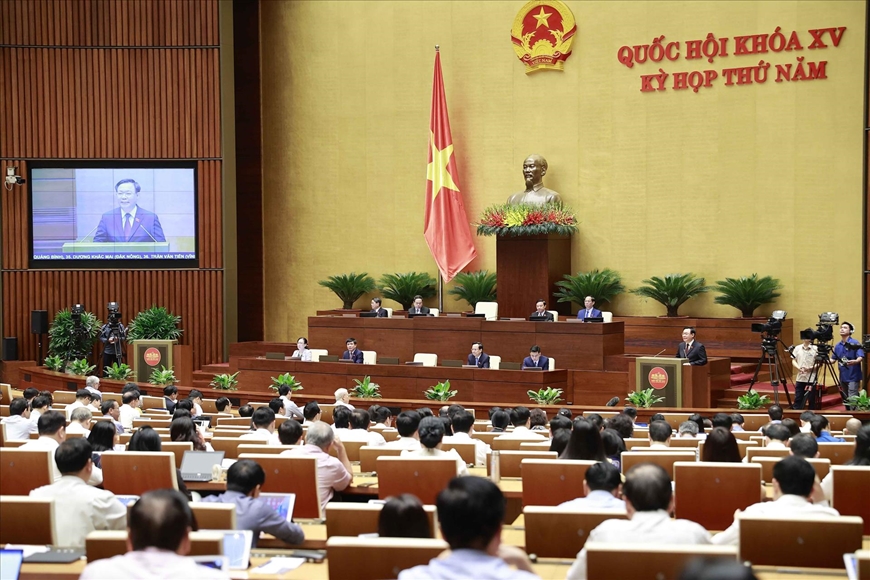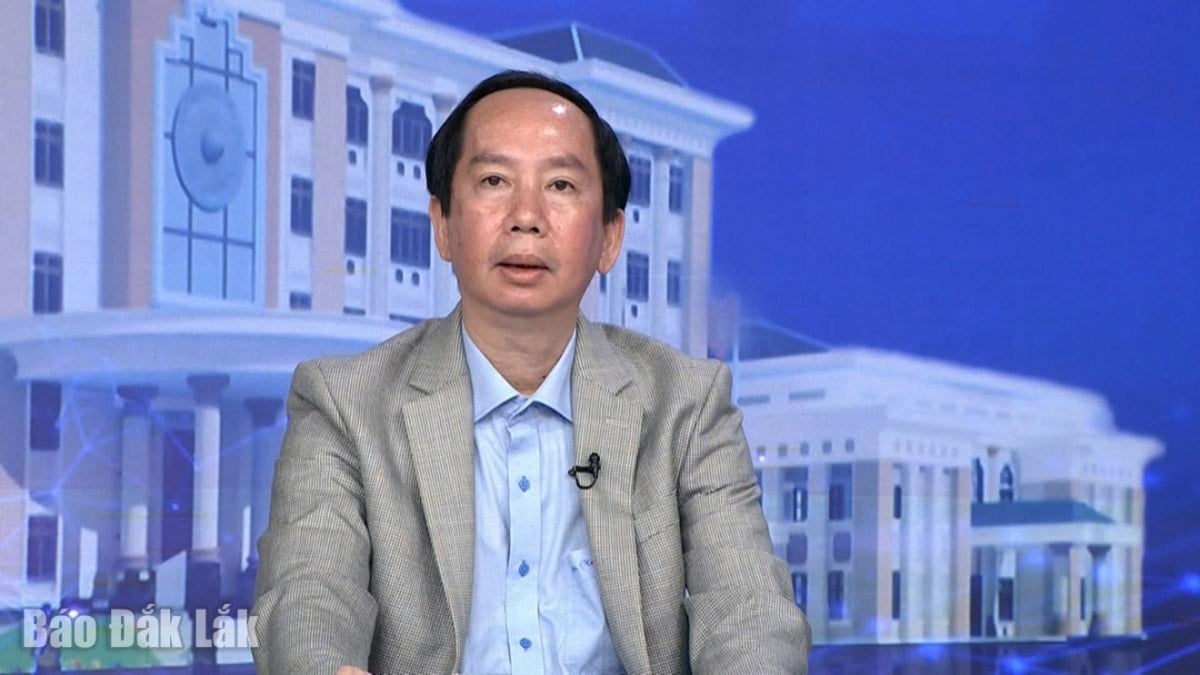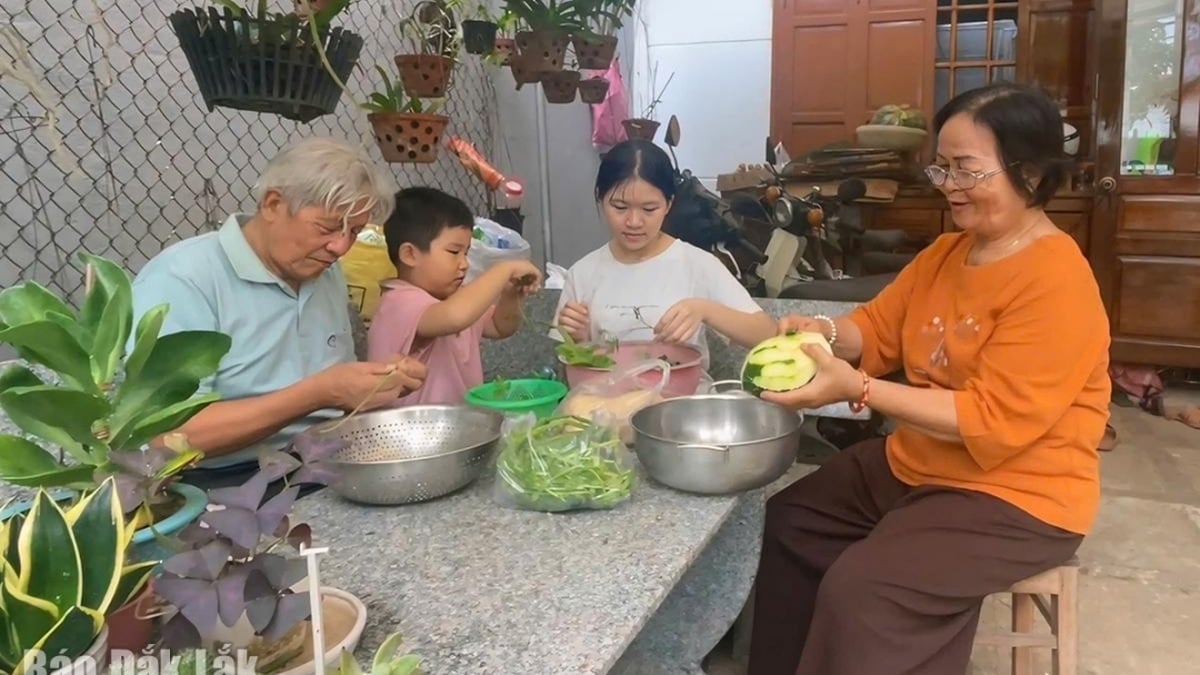National Assembly Chairman Vuong Dinh Hue signed and issued Resolution No. 96/2023/QH15 on taking a vote of confidence and voting for confidence in people holding positions elected or approved by the National Assembly or People's Council.
Accordingly, the National Assembly will take a vote of confidence for the following positions: President, Vice President; Chairman of the National Assembly, Vice Chairman of the National Assembly, member of the National Assembly Standing Committee, Secretary General of the National Assembly, Chairman of the National Council, Chairman of the National Assembly Committees; Prime Minister, Deputy Prime Ministers, Ministers, other members of the Government; Chief Justice of the Supreme People's Court, Chief Prosecutor of the Supreme People's Procuracy , State Auditor General.
The People's Councils at provincial and district levels shall take a vote of confidence for the following positions: Chairman of the People's Council, Vice Chairman of the People's Council, Head of the Committee of the People's Council at provincial and district levels; Chairman of the People's Committee, Vice Chairman of the People's Committee, members of the People's Committee at provincial and district levels.
In case a person holds multiple positions at the same time, the vote of confidence is conducted once for all those positions.
No vote of confidence shall be taken for a position holder who has announced his/her retirement or has been elected or appointed in the year of the vote of confidence.
 |
| National Assembly Chairman Vuong Dinh Hue speaks at the fifth session of the 15th National Assembly. Photo: VNA |
The vote of confidence and vote of no confidence aim to improve the effectiveness and efficiency of the supervision activities of the National Assembly and People's Councils; improve the quality and efficiency of the state apparatus; contribute to assessing the prestige and results of the performance of assigned tasks and powers of those who are voted for, and vote of no confidence, helping them see their level of trust to continue to strive, practice, and improve the quality and efficiency of their work; serve as a basis for competent agencies and organizations to consider planning, training, fostering, arranging, and using cadres.
The organization of the vote of confidence and the vote of no confidence must be carried out in accordance with this Resolution and other relevant legal provisions, ensuring substance and contributing to increasing the trust of voters and the people. Violations of the law on the vote of confidence and the vote of no confidence must be handled in accordance with the law.
The basis for assessing the level of trust for the person being voted on includes: Political qualities, ethics, lifestyle, compliance with the Constitution and laws; Results of performing assigned tasks and powers.
Prohibited acts include: Advocating or committing illegal acts to influence National Assembly deputies and People's Council deputies during the process of taking a vote of confidence or casting a vote of no confidence; Using or promising to donate, give, or support money, property, other material benefits or non-material benefits to advocate, entice, or bribe to influence National Assembly deputies and People's Council deputies during the process of taking a vote of confidence or casting a vote of no confidence; Falsifying the results of a vote of confidence or casting a vote of no confidence, the level of confidence, or taking advantage of a vote of confidence or casting a vote of no confidence to reduce the prestige of others, causing internal division and disunity.
The results of the vote of confidence are used to evaluate cadres, as a basis for planning, mobilizing, appointing, recommending candidates, dismissing and implementing regimes and policies for cadres.
A person who is voted on for a confidence vote and has more than half to less than two-thirds of the total votes for “low confidence” may resign. In case of refusal to resign, the Standing Committee of the National Assembly shall submit to the National Assembly, and the Standing Committee of the People's Council shall submit to the People's Council for a confidence vote at that session or the nearest session; in case a person has been voted on for confidence at the same time for multiple positions, the confidence vote shall be conducted once for those positions.
If a person subject to a vote of confidence receives a "low confidence" rating from two-thirds of the total votes or more, the agency or person with authority that recommends that person for election or approval by the National Assembly or People's Council shall be responsible for submitting to the National Assembly or People's Council for dismissal or approval of the proposal for dismissal at that session or the nearest session; in the case where a person has been subject to a vote of confidence at the same time for multiple positions, the dismissal or approval of the proposal for dismissal shall be carried out for those positions.
This Resolution comes into force from July 1, 2023.
Resolution No. 85/2014/QH13 dated November 28, 2014 of the National Assembly on taking a vote of confidence and voting for confidence in persons holding positions elected or approved by the National Assembly or People's Council shall cease to be effective from the effective date of this Resolution.
VNA
Source


































































































Comment (0)